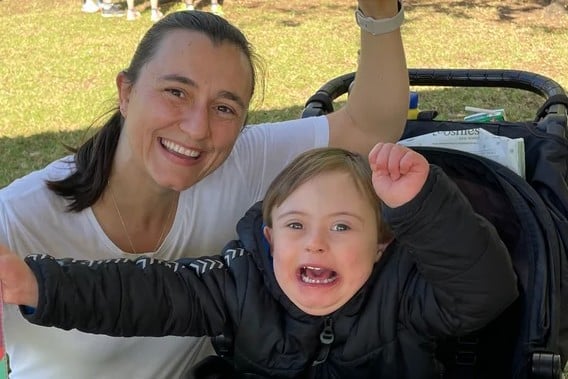
Content warning: this post discusses suicide.
Isabel Campbelltown was enjoying an acai bowl with her friends when her brother called her. She'd been exercising in the park, as she often did, and at just 25, answered the call without a care in the world.
"Hey, dad has died," her brother said.
"What?" she replied.
"Yes, he killed himself."
Isabel had a complicated relationship with her father. He was a controlling man, and as she grew into her teens, he became increasingly distant.
Watch: What Is Self-care Mental Health Literacy? Article continues after the video.
But his death had a profound impact on her, and for the first time in her life, Isabel became depressed.
"I felt very guilty that I hadn't done more, life kind of lost meaning and I didn't feel enjoyment about things I used to enjoy," says Isabel.
One day, after her mother found Isabel sobbing, she introduced her to therapy, which paved the way for self-reflection, ultimately leading to her decision to pack up her life, and move to Australia.
